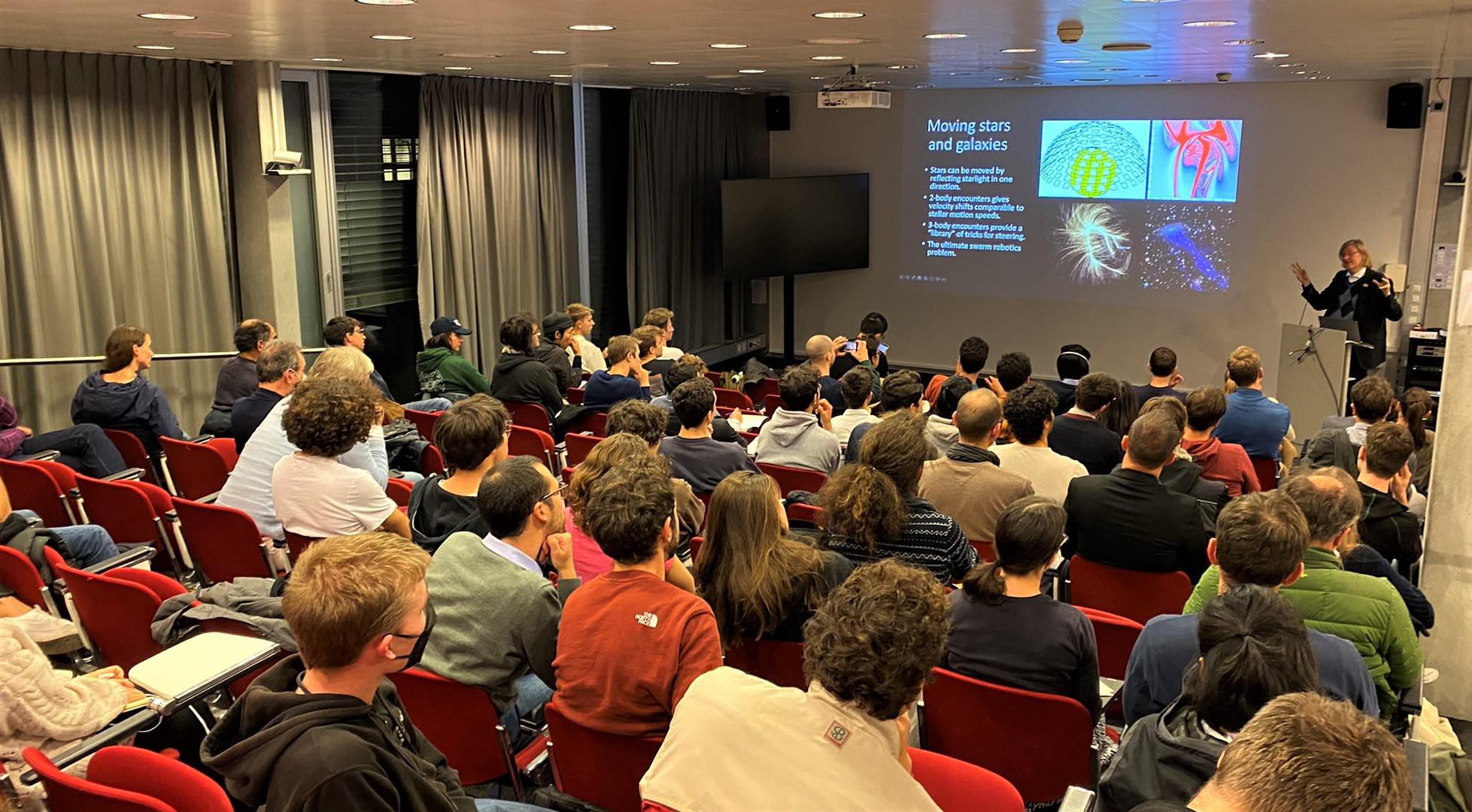“I'd like to see more people choosing a purpose-driven career path”

Henry, president of Effective Altruism Lausanne, an EPFL student association © 2023 EPFL / Alain Herzog - CC BY-SA 4.0
In addition to studying robotics at EPFL, the president of the student association Effective Altruism Lausanne is getting involved in this global movement, which has helped him think more rationally about how he could use his skills to make a positive impact on the world.
At the age of 18, Henry left his native Namur in Belgium to study at EPFL. After finishing his Bachelor’s degree in microengineering, he spent a year in Singapore as an exchange student before completing a series of internships as he fine-tuned his career plans. But it hasn’t been an easy decision for a young man with grand ambitions. “I’ve always been determined to do something useful,” says Henry. “Instead of taking the first engineering job that lands in my lap, I’d like to work for a purpose-driven company. I want to pursue a career in a meaningful field where I can make a positive impact on the world.”
The rational approach of effective altruism
Henry plans to choose his career path with the help of effective altruism, a movement that uses evidence and reason to determine the most effective way to build a better world. “The causes that interest me include tackling climate change, improving animal welfare in the factory-farming industry, and using my background in robotics to address health-care challenges,” adds Henry. “But I felt as though I lacked direction. These are huge issues. It’s hard to know where to start – and what difference you can make on an individual level. So when I discovered effective altruism, which takes a holistic approach to priority-setting, the concept instantly resonated with me. I found out about the EPFL association and signed up.” Effective altruism is a global movement with chapters in around 70 countries. In Switzerland, the movement has groups in Basel, Bern, Geneva, Zurich and Lausanne.
Henry quickly rose to the position of president of Effective Altruism Lausanne. Since September, he’s been working hard to grow the EPFL-recognized association and spread the ideas it promotes on campus. In that time, the committee has grown from three to sixteen members. The association has also launched several new events: alongside seminars, evening debates, lectures and speeches, there are also weekend activities, game nights and lunches – and they’re open to the entire EPFL community.
Artificial intelligence and alternative proteins
Henry and his colleagues have been trying to identify areas where EPFL could bring its unique expertise to bear. Last semester, they set up a special subgroup looking at safety issues around artificial intelligence (AI). In February, they ran a 10-day training camp, which drew around 20 attendees from across Europe. And just recently, a second subgroup has been formed, this time focusing on the development of alternatives to animal-based proteins. The new subgroup has already organized an eight-week program on technologies and challenges in this field. “On average, I devote 20 to 30 hours of my time to the association alongside my studies,” says Henry. “It’s a big commitment, but the rewards are worth it! I feel lucky to have had this opportunity.”
As he approaches the end of his Master’s degree in robotics, Henry isn’t in a hurry to nail down his future plans. But as things stand, he has his sights set on a career in AI safety and governance. “Everyone at EPFL has the knowledge and skills to make a positive impact on the world,” says Henry. “Given that the average person spends 80,000 hours of their lives at work, I’d say it’s worth taking the time to make the right decision.”





